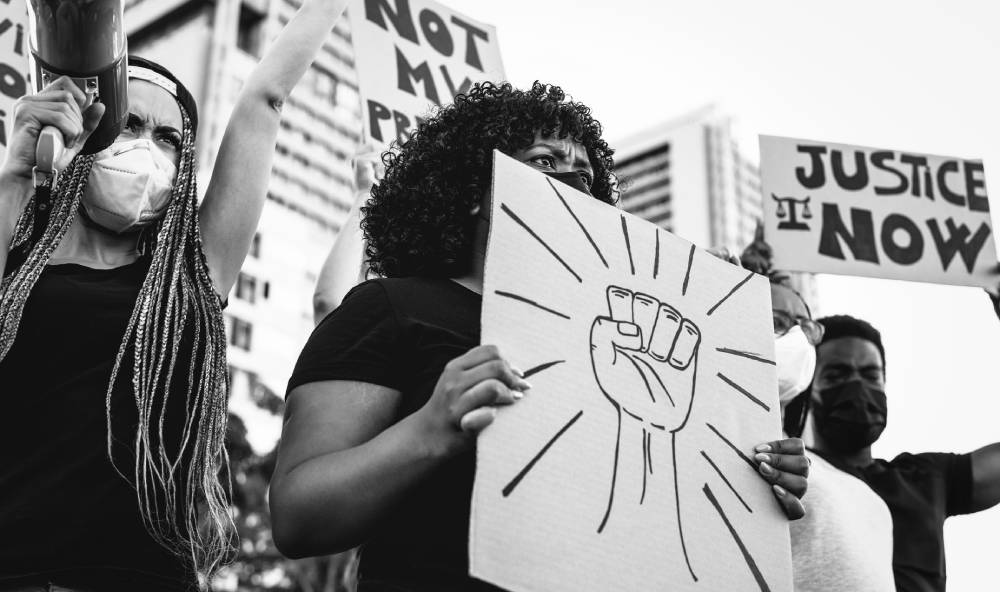Let’s have an honest conversation about the events of the past week that should serve as a wake-up call for many of the longstanding issues confronting the United States, which we continue to ignore. In the seventies, Richard Pryor accurately assessed the criminal justice system in the United States when he said, “If you’re looking for justice, that’s just what you’ll find — just us.” From its inception, the American system of jurisprudence was never intended for black people. Remember, property has no rights. No doubt our society has come a long way. Still, we need to stop patting ourselves on the back for the gradual movement towards an ideal that is so fundamental to our humanity it makes our claims of exceptionalism ring hollow. Unfortunately, we remain a society dangerously vested in a state of denial that, unless addressed, will prevent us from becoming what most of us aspire to be.
This weekend I saw a woman named Jane Elliott conduct an exercise with an audience of white Americans that everyone should see. She asked the people in the audience to stand up if they would be happy to receive the same treatment as blacks in our society. She repeated her request, and nary a soul stood up. She then took them to task for knowing that blacks are mistreated in our society but still willing to accept that they are. Oddly enough, the first thing that black people want from our society is acknowledging that racism and bias against black folks are systemic. Instead, you see too many posts to count trying to justify the murder and abuse of black men, women, and children. This denial runs so deep that we have a nation of political leaders that are too chicken shit to issue an apology for centuries of slavery and abuse. If something as simple as that is impossible, how hopeful can we be about ridding ourselves of this cancer?
I saw more than my share of talking heads speaking about their prescriptions for dealing with this crisis, and they ran the gamut from community policing to additional training for police. My question to these commentators and experts is, are these same solutions necessary in predominantly white communities? When a police officer stops a vehicle for a minor traffic violation and the occupants are a white young man, his girlfriend/wife, and a four-year-old child, do they approach the occupants with their weapons locked and loaded? Of course not. I’ve seen too many videos where white citizens were armed in confrontations with the police, and they receive better treatment than other black folks, and I receive when we are stopped for a burned-out taillight. One time I was stopped in South Carolina, and I showed the policeman my driver’s license, but he needed additional proof that I was who my license said I was. I then showed him my diplomatic passport, and his response, “What is this bullshit?” I kept my cool, but you would have sworn I was British if you heard my elocution that day. These events happen regularly.
I subscribe to the theory that racism is learned behavior. Still, it seems that it is much more difficult to “unlearn” beliefs and behavior associated with racism than to learn them. That is why I believe the cry for additional training is like applying a band-aid to a chest wound. We all know that in this world, there are people that do horrific things but a significant mechanism for coping with these people and the harm they create is that they will be held accountable. There is no accountability for police officers when they commit these crimes against black and brown citizens. This is a quote from the attorney for one of the policemen that killed Philando Castile in St. Paul, “I’m not concerned about criminal proceedings here, and I don’t think he is either.” The aggravating thing about his statement, based on previous outcomes, is that he is probably correct.
Part of our problem is that our society has entirely lost perspective. We routinely deem people, heroes, and heroines based on their uniform and not their actions in that uniform. People who volunteer for inherently dangerous positions deserve a heightened degree of respect and or admiration. The notion that everyone who dons that uniform is a hero creates this aura of infallibility difficult to pierce when judging their behavior, even when that behavior is criminal. The deck is stacked when the victim is an African-American. I served four years in the military and was told I was a damn good soldier but in no way am I a hero. Policemen need to know that there are consequences for their actions, and I’m not talking about “paid administrative leave.” Police officers need to know that they will be penalized when their actions violate their sworn duty to serve.
You often hear about how the number of police officers that commit such heinous acts is infinitesimal and that the large majority of police are dedicated, public servants. This very well may be true, but I have a question for all of the police that fit this description. What is it that holds you back from rooting out these rogue police officers? Don’t you realize that it is them that make your jobs so much more difficult? To borrow a phrase, “If you see something, say something.”
I recently went to the World War II Museum in New Orleans, and I highly recommend visiting it if you have an opportunity to go. The most impactful exhibit was an exhibit dedicated to the 120,000 plus African-Americans that volunteered to serve during the war. I was overwhelmed by the dedication and commitment of these military members that loved their country so much, but their country did not love them back. From the time we were shackled in slave ships to today, our humanity has been discounted, and it is time that we as Americans destroy that crippling legacy.
Views: 36
